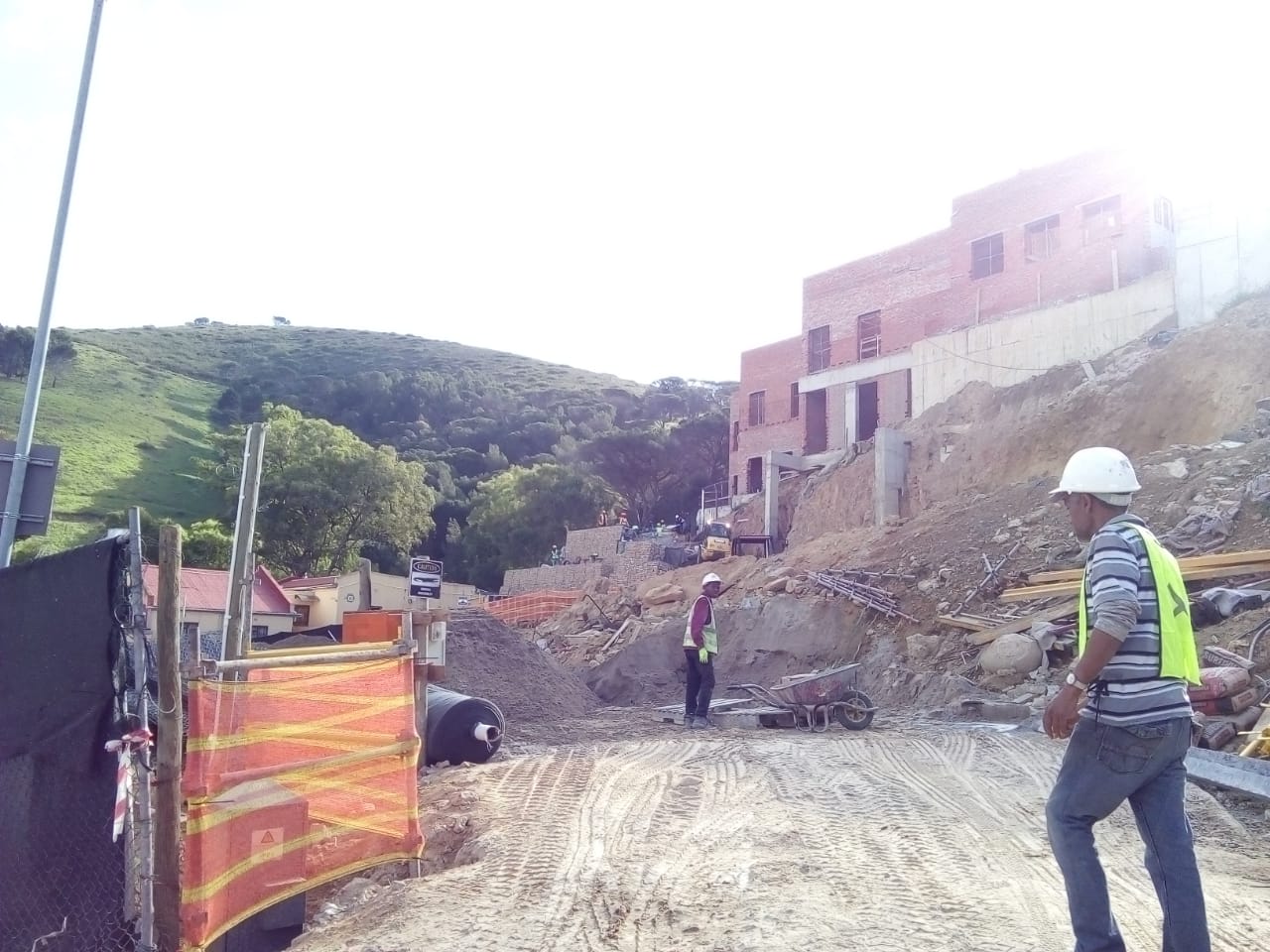By Tauhierah Salie
The South African Human Rights Commissioner, Chris Nissen led a walkabout in Bo-Kaap on Wednesday, following an engagement with the community in June over alleged human rights violations, as a result of the construction of 15 buildings in the area. Western Cape high court Judge Henney granted an order against six respondents on 6th July, to restrain anyone from committing acts of arson or vandalism, or entering or passing the construction site of property development company Bloc. The construction of a 12 floor apartment block is currently underway in Lion Street.
The interdict means that any individual actively trespassing the site could face prosecution and as the interdict broadly restricts “any persons” from being in or around the area. Residents believe anyone could be wrongly prosecuted.
The interdict also cited violent acts committed by civic organisations, including an alleged petrol bomb at their construction site, as part of the reason for the interdict. It prohibited anyone from going near the development alongside St Monica’s Maternity hospital, which carries an emotional attachment for residents. The residents have vowed to fight the construction company on the interdict as they believe their rights to consultation and freedom of movement have been violated.
“The people’s right to proper consultation has been violated over a number of years. The people were treated very unfairly. (How) can you have a court order saying “the community of the Bo-Kaap”? If that order was granted in that way, then anyone even passing by could be arrested. (The interdict must) identify people, so I feel that rights of the community have been violated. We as the Human Rights Commission are busy in the process of taking it up,” said Nissan.
The community also raised the issue of safety hazards as the construction sites do not have construction barriers and are risk to the public. There are also concerns about the damage caused on roads to already weak infrastructure, due to heavy construction vehicles entering and leaving the area.
Residents say they are looking into the legality of the sale of St Monica’s Home because they feel that the public donated ground should not have been sold to the developer but instead offered to residents. There are concerns that the impact of the construction of these building were not properly looked at as no traffic plans were put in place and that the effects on schools, such as St Paul’s Primary and Vista High, were not considered.

Despite the community having an array of occupants, Bo-Kaap is a predominantly Muslim area. Residents say the noise pollution created by the construction interfere with their daily lives as it starts early in the morning and continues till the evening, blocking out the Athaan (call to prayer) which residents rely on to complete their five daily prayers.
“They have no respect for the prayer times… they do as they please. Through the Ramadan they were working through the night. Through Jumuah waqt they’re working and the residents here (even) lodged complaints about the noise at night (but nobody gets back to us),” said Ebrahim Patel, Bo-Kaap Neighbourhood Watch manager.

Residents raised the issue of high water tariffs which elderly residents cannot afford to pay alongside the high rates. Bryant Street and Chiapinni Street have been without water for 2-3 days, despite the water pressure being very low throughout the day. Resident Shafiq Booley said they are meeting with City ward councillor Brandon Golding on the 11th August to discuss how this problem can be managed.
Muhammad Groeneweld, an executive member of the Bo-Kaap Civic and Rates Payers Association, said the media plays a vital role in as part of the collective to make the public aware of what has been transpiring in the area.
“What we want to make the Human Rights Commission aware of the kind of challenges Bo-Kaap goes through, to make sure they know exactly what (the community has to) endure. Both the people, the media and everyone else, should have an idea of the challenges. So whoever is out there and can help in some way should do that. For us, awareness plays a very big role.”

The Commission hosted a meeting with development company Bloc and the Bo-Kaap organisations cited in a court order, later the afternoon. The aim of the meeting was to establish a terms of reference for the court ordered meeting.
Although the occurrence was not a protest or picketing demonstration, it is clear that the residents feel strongly that the rich heritage and culture of the Bo-Kaap should be sustained. Bo-Kaap is one of the areas that is subjected to gentrification, a process which has segregated a country striving to become unified.

With South Africa also experiencing tough economic times, high water and rates tariffs are not singled to Bo-Kaap alone. Not only can the interdict granted by the Western Cape High Court be seen as an infringement on human rights but issues of public safety hazards, damage to already weak infrastructure and a lack of concern for the quality of education being disrupted; puts into question whether government is serious about putting the people first. VOC






 WhatsApp us
WhatsApp us 

